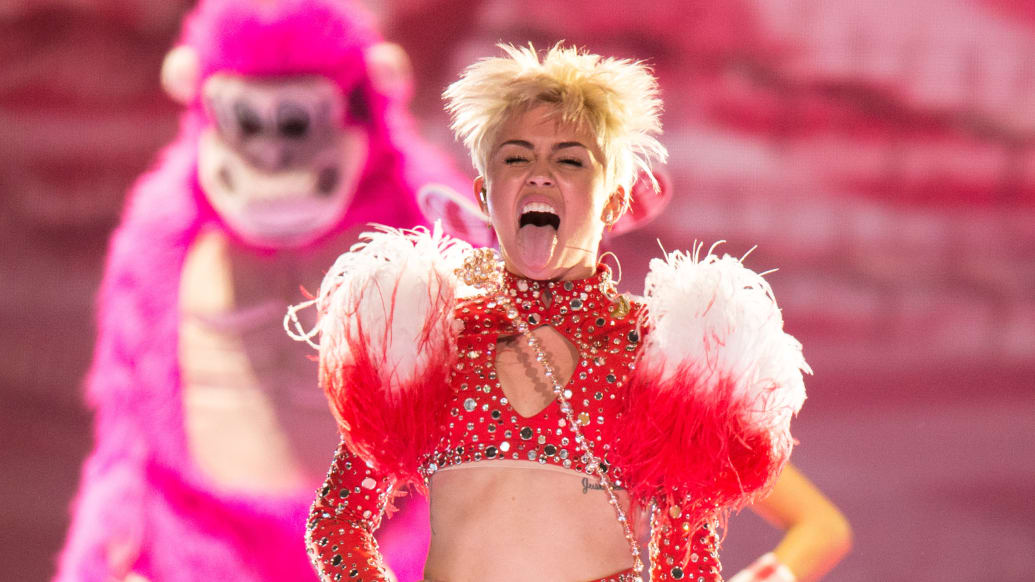Miley Cyrus began her Bangerz tour on Valentine’s Day in Vancouver. The opinions of critics have been mixed, but one thing is for sure: the 21-year-old pop star is taking her biggest tour to new levels of age appropriateness. Some of her performances include provocative video montages, mocking oral sex while wearing a Bill Clinton mask, on-stage masturbation, and grinding with her backup singers. For parents of tweens, it can be a nightmare to witness.
After receiving numerous complaints from parents who walked out of a Miley Cyrus concert with their 9-year-olds due to the explicit content, the singer’s record label and tour staff are considering ways to tone down the show. However, if they are unable to control her behavior, the Bangerz tour may lead to the establishment of a concert rating system, much like those for movies, video games, and albums. Many parents are upset with Cyrus’s transformation from a Disney personality to a provocative figure seemingly overnight. Although she has gradually changed her image over the past five years, her hiring of Larry Rudolph as her manager in 2013 accelerated her shift into a more adult, sex- and drug-infused persona.

It’s understandable to question how some parents buying Miley Cyrus tickets were not aware of her controversial public image in recent months, but it’s evident that some were not. In today’s world of excessive multimedia exposure, this ignorance highlights the responsibility for media makers to provide notification rather than solely relying on consumers to do their own research.
This is not a new concept as other forms of media have had ratings for many years. Movie ratings have existed in some form since 1930, and video games have had ratings since 1994 thanks to the Entertainment Software Rating Board’s response to violent and sexually explicit content in console games like Mortal Kombat. Ratings are required in movies and video games, but music’s “Explicit” Parental Advisory Label is not mandatory and is left up to the discretion of the label. The Explicit label was introduced in 1985, with Prince’s Purple Rain being the highest-selling album of the year to receive the warning.

A concert rating system would likely follow a binary model similar to the current record system. Unlike the concerts of the past, today’s highly produced shows leave little room for unexpected mayhem. Shock performers like GG Allin, who once practiced self-mutilation on stage and promised fans he would commit suicide during a performance, are no longer commonplace. Unfortunately, Allin died of a drug overdose before fulfilling his promise. According to Merle, Allin’s brother and bass player, touring with GG was unpredictable due to the high likelihood of ending up in either prison or the hospital. Some parents are protesting Miley Cyrus’s tour, with many reselling tickets at a lower price than before due to controversial performances and mixed reviews. The average cost for the remaining 39 North American shows is now $179, which is down from $225 two months ago.

The introduction of Parental Advisory Labels (PAL) on records had an unintended consequence of actually increasing demand for records with the label due to its presence. While it remains uncertain if a similar impact would occur by issuing an “explicit” warning for those buying tickets to see Miley Cyrus’ Bangerz, it would certainly clarify that she is not just a more mature version of Hannah Montana. For those who may have missed her very public transformation, it would also serve as fair warning.

